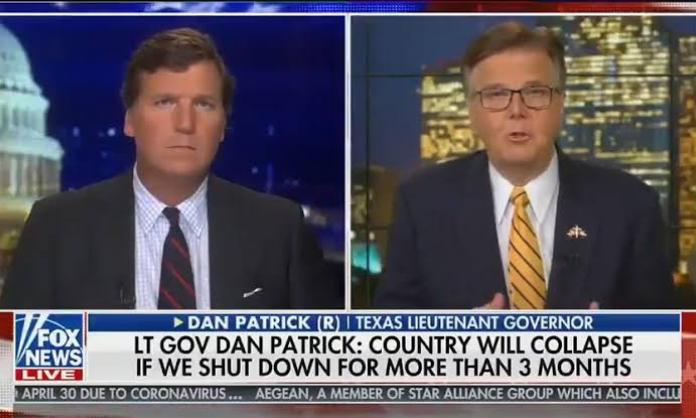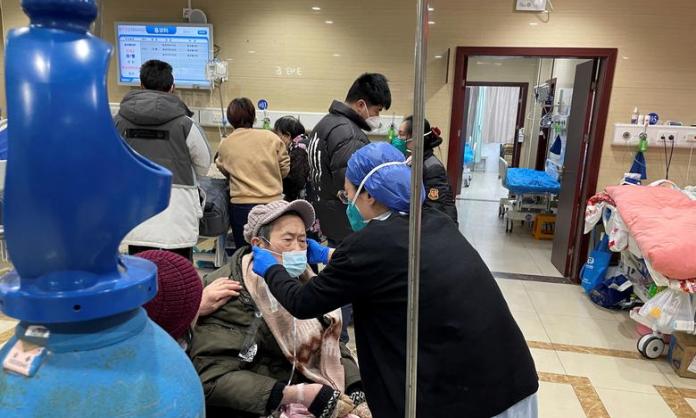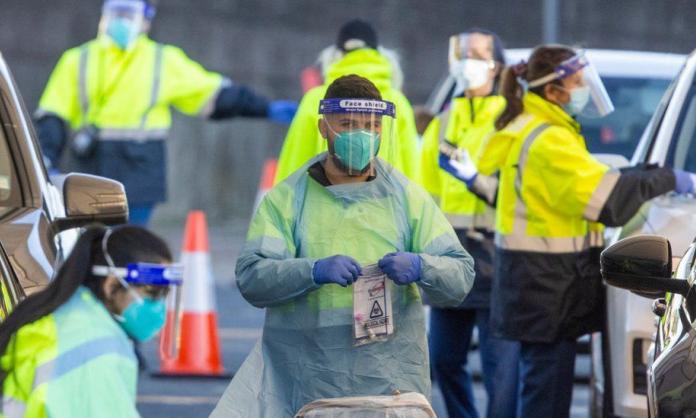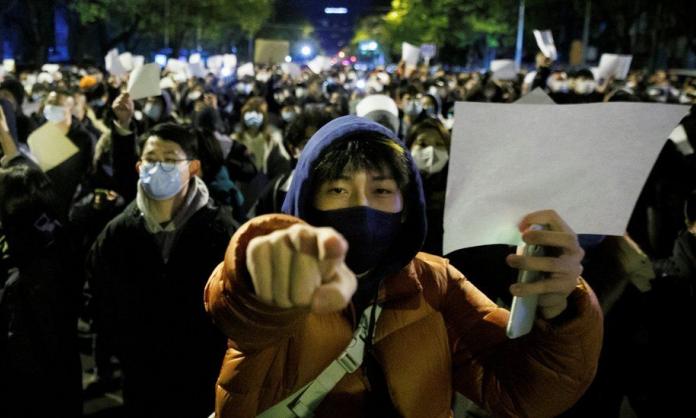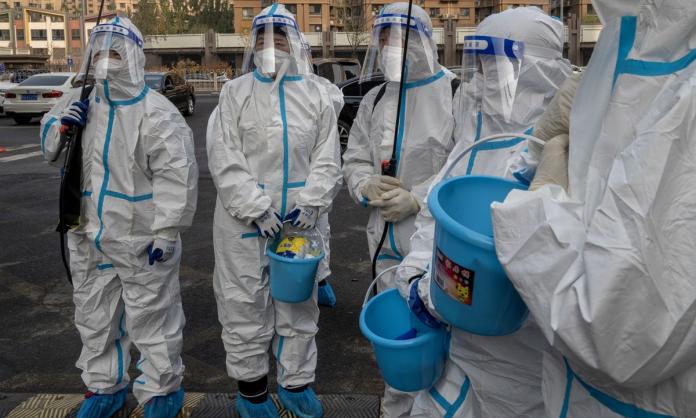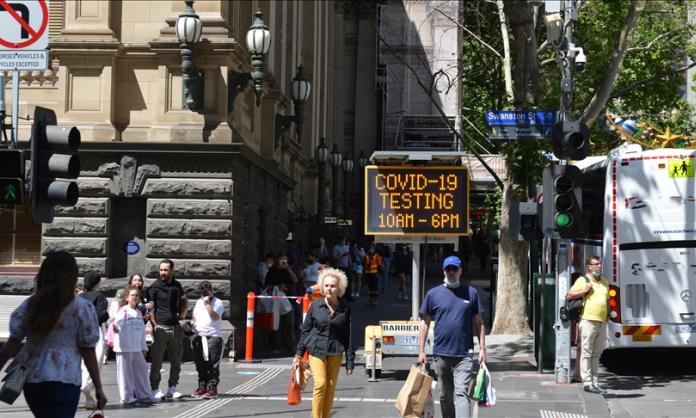How many people would you kill in a plague to get a competitive economic advantage? In an era of thought crime, could you get locked-up for even thinking about it? Apparently not. Indeed, it’s becoming fashionable among ruling circles in the United States.
President Donald Trump is eager to kickstart the US economy even before the country’s public health crisis peaks. “It’s gonna be fairly soon”, he said in an extended White House press briefing this week. “We don’t wanna lose these companies ... If it were up to the doctors, they’d say ‘let’s shut down the entire world’ … You can’t do that, especially in the number one economy in the world.”
The “get the country open for business” message has become more frequent in the last week, just as the bodies start to really pile up in the coronavirus pandemic. The Wall Street Journal editorial board on 19 March argued in a post, which it admitted “won’t be popular”, that “federal and state officials need to start adjusting their anti-virus strategy now to avoid an economic recession”. The editors titled it “Rethinking the coronavirus shutdown”. It may as well have read “We’re thinking ‘fuck life, show me the money’”.
On Monday night US time, Republican lieutenant governor of Texas Dan Patrick was more emphatic: grandparents around the United State are begging to die to get the economy moving. “No-one reached out to me and said, ‘As a senior citizen, are you willing to take a chance on your survival in exchange for keeping the America that all America loves for your children and grandchildren?’ And if that’s the exchange, I’m all in”, the 69-year-old told Fox’s Tucker Carlson. “I don’t want the whole country to be sacrificed. And that’s what I see ... Let’s get back to work ... and those of us who are 70-plus, we’ll take care of ourselves. But don’t sacrifice the country.”
Patrick said that he’s not “noble or brave or anything like that”. And he’s right. He’s a coward – a wealthy, establishment slug using his age, and the purported anxieties of US pensioners, to guilt-trip others into sacrificing their own lives to keep his economy running. All his big talk comes as the World Health Organization warns that the US is set to become the epicentre of the global pandemic as its infection rate spikes out of control. More than 8,000 new cases in the US were confirmed in the last 24 hours, bringing the total to more than 55,000. There were almost 200 new deaths, bringing the toll so far to more than 800.
There is a sacrifice being made, alright. It’s of the American worker at the altar of capitalist profit. Those who remain at work are already taking significant risks due to the lack of safety resources. For example, the country’s reserve of critical medical supplies reportedly holds only one percent of the required face masks, leading some nurses to make their own at home between shifts. And the Washington Post reports that Amazon staff in warehouses around the country – New York, Kentucky, Florida, Texas, Michigan and Oklahoma – have tested positive for COVID-19.
“Just last week, warehouse workers sounded alarms that the company is not doing enough to protect them from the virus”, writes technology reporter Jay Greene. “Some workers complained that Amazon pushes them to meet the per-hour rate at which it wants orders fulfilled, a practice that they worry discourages safe sanitary practices such as washing hands after a cough or sneeze. Others have complained about ‘stand-up’ meetings, where workers stand shoulder-to-shoulder at the start of each shift.”
Stories like this have been proliferating on social media as desperate workers plead for help, and despair that they can’t afford to take time off. But those at the top are not listening. When drastic, immediate action to save thousands is required, the president, the voices of big capital and the blow-hard political right are pushing for returns on investment and congress is negotiating to give taxpayer handouts to the companies standing down workers without pay.
While sections of the US ruling class are focused squarely on their own business operations and financial market portfolios, there’s another concern, which perhaps allows a different perspective on Dan Patrick’s “don’t sacrifice the country” theatrics: China. Partisan lines between Democrats and Republicans are in many instances sharply drawn on the White House’s response to the pandemic, but enmity to Beijing stretches across congressional aisles. Within establishment circles, there is universal dismay over the relative decline of US imperialism in the 21st century.
The current crisis may prove yet another setback – after the disaster of Iraq from 2003 and Wall Street’s financial meltdown in 2008 – to the dream of “a new American century” of global dominance. It could come either of two ways. The first, critics of Trump argue, is the lack of “global leadership” in a time of crisis, which allows China to position itself as a saviour and strengthen its diplomatic relationships. Kurt Campbell, former assistant secretary of state for east Asian and Pacific affairs, and Rush Doshi, a fellow at Yale Law School’s Paul Tsai China Center, argue in a recent Foreign Affairs piece:
“Beijing is moving quickly and adeptly to take advantage of the opening created by US mistakes, filling the vacuum to position itself as the global leader in pandemic response. It is working to tout its own system, provide material assistance to other countries, and even organize other governments ... Consider China’s increasingly well-publicized displays of material assistance – including masks, respirators, ventilators, and medicine ...
“When no European state answered Italy’s urgent appeal for medical equipment and protective gear, China publicly committed to sending 1,000 ventilators, two million masks, 100,000 respirators, 20,000 protective suits, and 50,000 test kits. China has also dispatched medical teams and 250,000 masks to Iran and sent supplies to Serbia, whose president dismissed European solidarity as ‘a fairy tale’ and proclaimed that ‘the only country that can help us is China’.”
When Western countries engage in this sort of behaviour, they call it foreign aid. They tell us that it is public-spirited and humanitarian; no strings attached. But they know different, hence the immediate suspicion of Chinese “generosity”. In global politics, there’s always some sort of quid pro quo. Trump’s establishment critics fear that, under his watch, all the quos are going elsewhere and the stature of US imperialism is being diminished.
The second way the blow may come is front and centre of Trump and his backers’ minds when the president talks about the US being the “number one economy in the world”. The Chinese Communist Party for now seems to have brought COVID-19 under control. The country recently suffered its first quarter of negative economic growth in decades, but Hubei, the province at the centre of the outbreak, is ending its lockdown. Soon, more Chinese workers will be back on shift. Yet the US is facing a contraction that will dwarf the 2008-09 crisis and potentially be deeper still than the Great Depression of the 1930s. The coming collapse will shift the global power balance in the direction of Beijing, as it did after 2008 – even if, or when, it too is dragged into the global downturn. This has unnerved China hawks across the US.
“According to discourse in China right now, this opportunity is akin to that of the 2008 financial crisis – but bigger”, write Emily de La Bruyère and Nathan Picarsic of Horizon Advisory, a consultancy firm based in Washington, D.C., and New York. “Beijing intends to use the global dislocation and downturn to attract foreign investment, to seize strategic market share and resources ... to as Chinese sources put it, ‘leap-frog’ industrially, ‘overtake around the corner’ strategically, capture the ‘commanding heights’ globally.”
Whether it’s able to do such things is another question. But the prospect of China expanding its influence after three years of Trump trying to stifle it by way of aggressive sanctions may have been enough to inspire a geriatric lieutenant governor to pledge the lives of pensioners all over the US. That driving open the economy too soon might result in a worse crisis seems not to have entered his or the president’s minds.
Karl Marx noted that capitalism turns profit-making into “the sole end and aim of humanity”. In the US, we have a vivid display of the psychotic reflexes such an end produces in ruling class consciousness. With the added dimension of imperialist competition, the end is more than just money. And those striving for global dominance rarely let cost considerations get in the way. When it comes to competition with China, no price will be too high to pay. They’d kill millions of their own citizens to save the American Dream of global domination.




